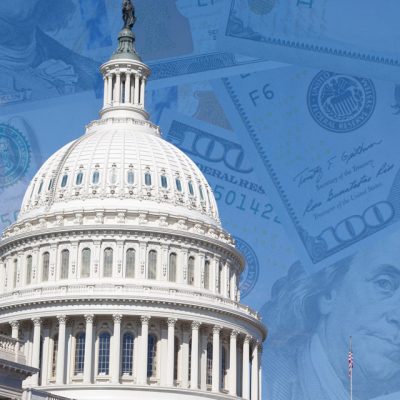5 Things Senators Are Hearing About Killer Drug Prices
1. One culprit is the U.S. patent system.
Collins said drug prices are inflated, in part, by an opaque patent system. "Humira – the world's best-selling drug – is protected by more than 130 patents, some of which have terms that extend to 2034," she said. "These patents block generic competition that could bring down the price for biologics." Collins has introduced S. 659, the "Biologic Patent Transparency Act" bill. The bill would discourage drug companies from introducing patents to keep competitors from introducing lower-priced alternatives.
2. Plan drug coverage rules are confusing.
Lisa Gill, the deputy editor of special projects at Consumer Reports, said Consumer Reports found that consumers with Medicare Part D prescription drug plans can have a hard time determining how well the drugs they need will be covered. Consumers who pick plans based simply on the deductible amounts may overlook other coverage that could lower overall annual costs, Gill said.
3. Drug prices vary in strange ways.
The price of a drug can vary widely from pharmacy to pharmacy in a given region, and that can cost a consumer hundreds of dollars per year, Gill said. In about 18% of the cases Consumer Reports reviewed, it would be cheaper for patients to pay cash and buy the drugs outside of the plan, Gill added. Gill gave celecoxib — the generic version of Celebrex, a well-known nonsteroidal anti-inflammatory drug — as an example of that problem. Buying generic Celebrex through a Cigna plan in Des Moines, Iowa, which does not include celecoxib on its formulary, would cost a consumer $212 a month, she said. At Kroger, she said, the same drug is available for $6.
4. Health insurers usually use the full list prices of drugs to calculate the patients' share of the costs.
Dr. Stacie Dusetzina, an associate professor of health policy at Vanderbilt University Medical Center, gave the new, high-cost hepatitis C drugs as example of how calculations of patients' share of the costs now work. A typical course of hepatitis C treatment takes 84 days. The list price for that course of treatment is $93,000. Typical insurers and pharmacy benefits managers might pay $35,000. A Medicare Part D plan would use the $93,000 list price to calculate the patient's out-of-pocket costs, not the $35,000 discounted price, Dusetzina said. In the Medicare program, "patients who need expensive drugs, or who need a lot of drugs, are subject to unlimited out-of-pocket spending," Dusetzina said. "Insurance should be designed in a way that protects people from financial catastrophe when they're sick, and today's Medicare Part D program does not do that."
5. Thoughts about airline ticket booking systems are still in the air.
Sen. Martha McSally, R-Ariz., said it's not acceptable that people need to choose between food and medicine to pay for medicine, or that some people have to travel to Mexico to gets drugs they can afford. Providing consumers with better pricing information should help bring prices down, she said. "Why," she asked, "can't we have an Expedia.com of prescription drugs?"
A Senate Drug Price Bill Sampler
Here's a look at three drug price bills senators mentioned at the Senate drug price hearing:
- S. 469 – the "Affordable and Safe Prescription Drug Importation Act" bill (Sen. Bob Casey, D-Pa.): Would let Americans import medicine from Canada.
- S. 2582 – the "Consumer Health Insurance Protection Act" bill (Sen. Elizabeth Warren, D-Mass.): Would ban insurers from dropping drug coverage mid-year and cap out-of-pocket drug costs at $250 a month for individuals and $500 for families.
- S. 3754 – the "CURE High Drug Prices Act" bill (Sen. Richard Blumenthal, D-Conn.): Would require a drug's maker to justify a big increase in the drug's price.
Resources
Links to hearing resources, including a video recording and written versions of the witnesses' testimony, are available here. — Read Drugs Might Be the 2019 Health Cost Good Guy: CMS Actuaries, on ThinkAdvisor. — Connect with ThinkAdvisor Life/Health on LinkedIn and Twitter.
© Touchpoint Markets, All Rights Reserved. Request academic re-use from www.copyright.com. All other uses, submit a request to [email protected]. For more inforrmation visit Asset & Logo Licensing.
Featured Resources
View All
Sponsored by Axos Advisor Services
Integrated Banking Solutions: How To Enhance Client Services and Grow Your Business

Sponsored by Optifino
Three Macro Trends Impacting Long-Term Care: Trends, Solutions & Client Conversations

Sponsored by Vanilla
The Missing Piece: Why Advisors Who Skip Estate Planning are Failing Their Clients







